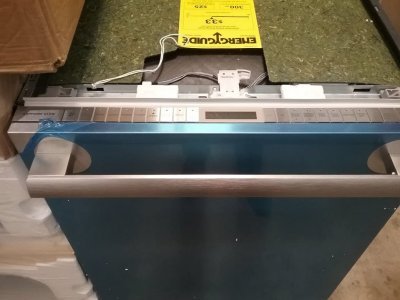Table of Contents
Troubleshooting Guide: Why is My Dishwasher Not Draining Properly?
A dishwasher is a time-saving appliance that simplifies our lives by handling the arduous task of washing dishes. However, a common issue that many dishwasher owners encounter is inadequate draining. When your dishwasher fails to drain all the way, it can lead to unclean dishes, unpleasant odors, and potential damage to the appliance. In this comprehensive troubleshooting guide, we will explore the possible reasons behind this problem and provide practical solutions to help you resolve it.
Understanding the Problem:
Signs of Inadequate Draining Before we delve into the potential causes and solutions, let’s identify the common signs of a dishwasher not draining properly. Look out for the following indicators:
- Standing Water: Observe if there is excess water remaining in the dishwasher after a complete cycle.
- Food Residue: Notice if there are food particles or debris left on the dishes, indicating poor drainage.
- Foul Odors: Lingering odors emanating from the dishwasher can be a result of stagnant water.
- Slow Drainage: Pay attention to how quickly the water drains out during the cycle; a slow or incomplete drain is a clear sign of a problem.
Possible Causes and Solutions To address the issue of inadequate draining, it is essential to identify the underlying cause. Here are some potential reasons along with their corresponding solutions:
- Clogged Filter or Drain Basket: The filter and drain basket prevent food particles and debris from clogging the drain pump. If these components become obstructed, it can hinder proper drainage.
Solution:
a. Remove the filter and drain basket.
b. Rinse them under running water to remove any accumulated debris.
c. Reinstall the filter and drain basket securely.
- Blocked or Kinked Drain Hose: A blocked or kinked drain hose can restrict the water flow, leading to poor drainage.
Solution:
a. Disconnect the drain hose from the dishwasher and sink drain.
b. Check for any obstructions or kinks in the hose.
c. Clear any debris or straighten out kinks. d. Reattach the drain hose securely.
- Air Gap Issues: The air gap, a small device installed on the sink or countertop, prevents backflow of drain water into the dishwasher. If it becomes blocked, it can impede drainage.
Solution:
a. Locate the air gap and remove the cover.
b. Clean out any debris or residue using a small brush or toothpick.
c. Rinse the air gap thoroughly and reattach the cover.
- Garbage Disposal Clog: If your dishwasher is connected to a garbage disposal unit, a clogged disposal can obstruct proper drainage.
Solution:
a. Turn off the power to the disposal unit.
b. Clear any clogs or obstructions in the disposal using a long-handled utensil or plunger.
c. Once the disposal is clear, run hot water through it to flush out any remaining debris.
d. Restart the dishwasher to check if the drainage issue has been resolved.
- Faulty Drain Pump: A malfunctioning drain pump may not effectively expel water from the dishwasher, resulting in inadequate drainage.
Solution:
a. Consult the dishwasher’s user manual to locate the drain pump.
b. Check for any visible signs of damage or blockages.
c. If the drain pump appears faulty, consider contacting a professional technician for repair or replacement.

Can hard water cause drainage issues in my dishwasher?
Yes, hard water can contribute to drainage problems. Mineral deposits from hard water can accumulate in the dishwasher’s components over time, obstructing proper water flow. Regular cleaning and descaling of the dishwasher can help mitigate this issue.
Why is there water at the bottom of my dishwasher even after it completes the cycle?
There are several possible reasons for this. It could be due to a clogged filter or drain basket, a blocked or kinked drain hose, a faulty check valve, or a malfunctioning drain pump. Refer to the solutions provided earlier to address these potential causes.
Can I use chemical drain cleaners to unclog my dishwasher?
It is generally not recommended to use chemical drain cleaners in your dishwasher. These cleaners are designed for use in plumbing pipes and may contain harsh chemicals that can damage the dishwasher’s components. It’s best to stick to manual cleaning methods and seek professional assistance if necessary.
How often should I clean my dishwasher to prevent drainage issues?
Regular maintenance is crucial to keep your dishwasher in optimal condition. It is advisable to clean the filter and drain basket every month or as recommended by the manufacturer. Additionally, perform a deep cleaning of the dishwasher interior, including the spray arms and nozzles, at least once every three months.
What should I do if none of the suggested solutions resolve the drainage problem?
If you have tried all the troubleshooting steps mentioned above and the dishwasher still does not drain properly, it is advisable to seek professional assistance. A certified technician can diagnose the issue accurately and provide the necessary repairs or replacements.
Conclusion:
A dishwasher not draining properly can be a frustrating problem that affects the efficiency and cleanliness of your dishes. By understanding the common causes and implementing the appropriate solutions discussed in this troubleshooting guide, you can resolve the drainage issue and restore your dishwasher’s functionality. Regular maintenance and proper care will help prevent future drainage problems, ensuring a clean and efficient dishwasher for years to come

